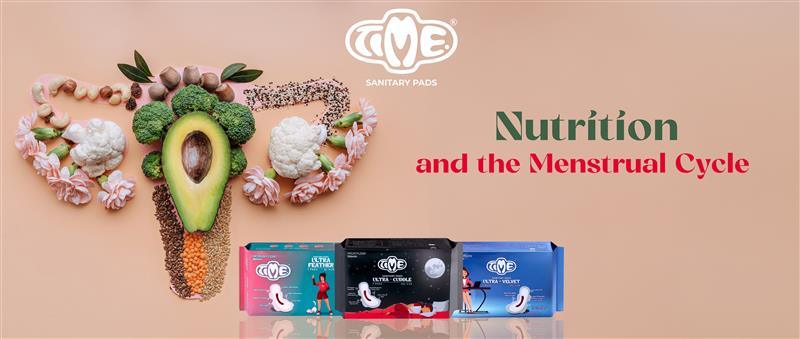The menstrual cycle is an intricate process influenced by hormonal fluctuations that affect a woman’s health, including her mood, energy levels, and physical comfort. During this time, nutrition can play a significant role in helping to ease symptoms and support overall well-being. This article will dive into essential nutrients and dietary strategies to help women feel their best at every stage of their menstrual cycle.
Key Nutrients to Support Your Menstrual Cycle
Iron
During menstruation, blood loss can deplete iron stores, which may lead to fatigue and anemia in some women. To replenish iron, focus on iron-rich foods like lean red meats, spinach, lentils, beans, and fortified cereals. Combining these with vitamin C-rich foods, like citrus fruits or bell peppers, can improve iron absorption.
Magnesium
Magnesium is known for its ability to ease cramps and support muscle relaxation. It may also help manage mood changes and bloating. Foods high in magnesium include dark leafy greens, nuts (especially almonds), seeds, and whole grains.
Calcium and Vitamin D
These nutrients work together to support bone health and may reduce PMS symptoms such as mood swings and fatigue. Calcium is found in dairy products, fortified plant milks, and leafy green vegetables. For vitamin D, consider foods like fatty fish, egg yolks, and fortified products, and try to get sunlight exposure when possible.
Omega-3 Fatty Acids
Omega-3s are anti-inflammatory and can help reduce pain from cramps by lowering the body’s production of prostaglandins, compounds that cause muscle contractions. Include sources like salmon, chia seeds, walnuts, and flaxseeds in your diet.
Vitamin B6
This vitamin can assist in mood regulation by boosting serotonin production, helping alleviate mood swings associated with PMS. You can find B6 in foods such as bananas, chickpeas, potatoes, and poultry.
Complex Carbohydrates
Complex carbs help stabilize blood sugar levels, which can fluctuate during the menstrual cycle. Balanced blood sugar levels may reduce fatigue and prevent mood swings. Whole grains, sweet potatoes, and legumes are excellent sources of complex carbohydrates.
Diet Tips for Each Phase of Your Cycle
Menstrual Phase:
Focus on iron-rich foods and hydration. Warm drinks, like ginger tea, can help with cramps. Also, including light, nourishing meals with leafy greens, lean proteins, and whole grains will support energy levels.
Follicular Phase:
This is a good time to fuel up on antioxidants and healthy fats to support cell renewal and energy. Fresh fruits, vegetables, and foods rich in omega-3s can enhance focus and provide steady energy.
Ovulation Phase:
During ovulation, metabolism tends to peak, so you may feel more energized. Emphasize high-fiber foods, and lean proteins, and continue with omega-3s to support your energy and mood.
Luteal Phase:
In this phase, you may crave carbs due to hormonal changes. Opt for complex carbs, which can keep you satisfied and help with bloating. Include magnesium-rich foods and consider reducing caffeine intake if you’re prone to irritability or anxiety.
Staying Hydrated
Staying hydrated is vital throughout your menstrual cycle. Drinking water helps reduce bloating by flushing out excess sodium, eases cramps by keeping muscles relaxed, and supports digestion, which can prevent constipation. Aim to drink at least eight glasses of water daily and consider including calming herbal teas like chamomile or peppermint. Staying hydrated contributes to comfort and balance during your period.
Conclusion:
A balanced diet incorporating these essential nutrients can make a big difference in how you feel throughout your menstrual cycle. By understanding your body’s unique needs and paying attention to its signals, you can take proactive steps to support your well-being during periods. Embracing these nutritional strategies can help you feel more in control, energized, and comfortable at every stage of your cycle.
Remember, every woman’s experience is unique, so be patient with yourself and discover the foods and routines that work best for you.



